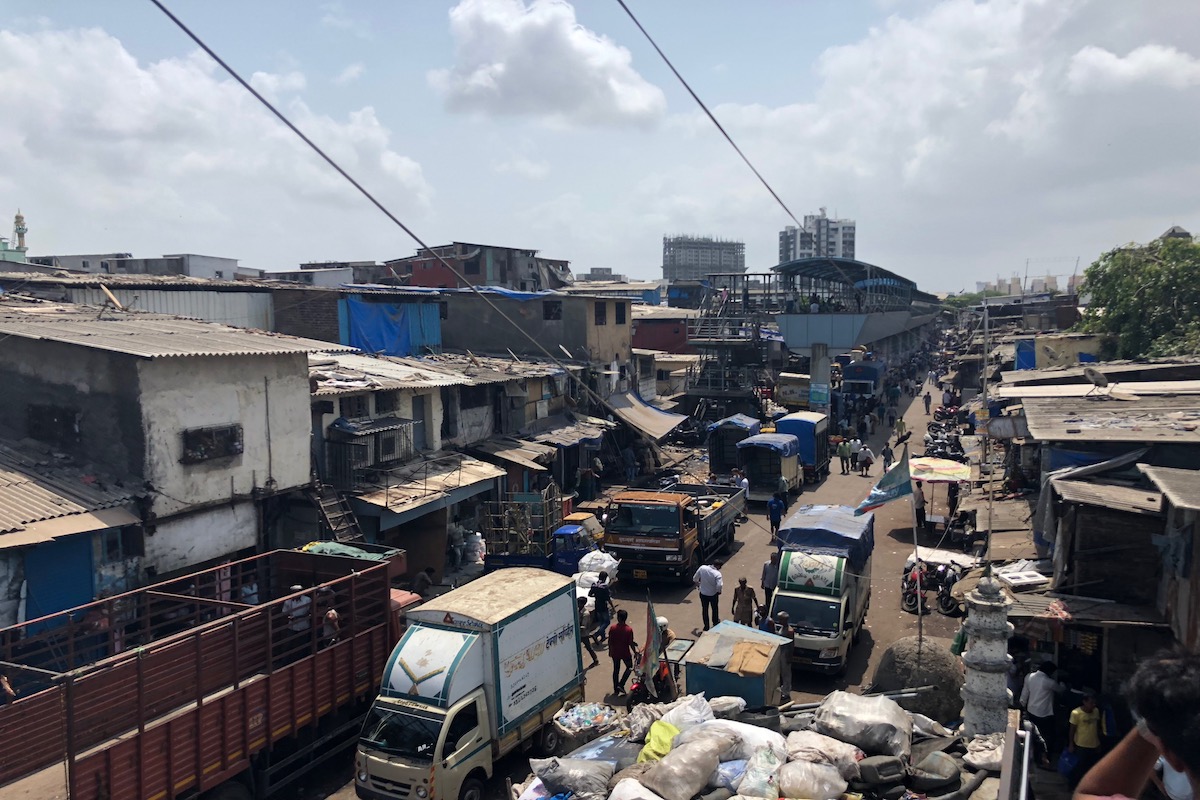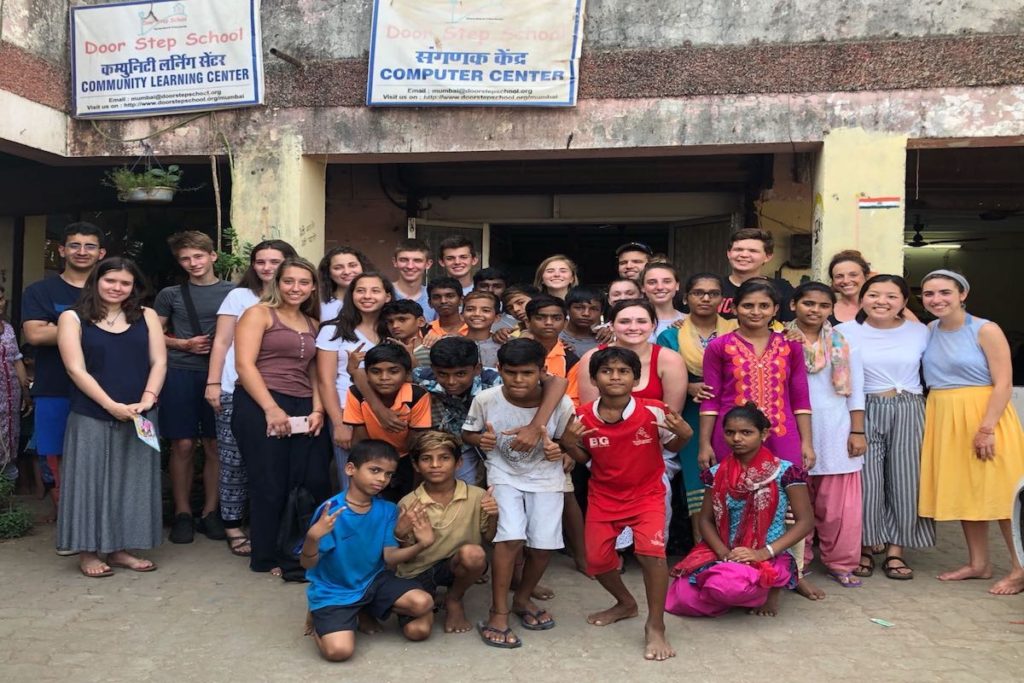
Happiness thrives in the most unexpected places. Traveling to India this past May with fifteen of my classmates, I found that to be true more times than I ever would have thought imaginable.
We spent ten days traveling throughout India to four different cities, each with its own wonders. The most memorable city was our last stop, Mumbai, because of the stark contrast between its excessive wealth and its extreme poverty.
On our final day, we visited Dharavi, the largest slum in India. Driving there, I was unsure of what to expect and, honestly, a little concerned for our safety. I expected poverty at a disturbing level with beggars on every corner and malnourished children struggling to walk.
Upon arrival, all of my expectations were torn to shreds.
Dharavi is a vivacious, industrial hub with a population of one million people that encompasses a meek two-square kilometer area. These people manufacture textiles, pottery, and high quality leather that finds its way to well-known brands all over the world. Despite the overcrowdedness, people from all over India flock to Dharavi because, here, they find opportunity. This is their version of luxury, and they don’t want to live anywhere else.
As we were walking, our Dharavian guides kept repeating one surprising fact: people are happy here. The more we walked through Dharavi, the more I found this to be true. Adults worked, proud of what they were accomplishing; children peeked in and out of the small rooms they called home, smiling and excitedly shouting “Hi!” to us visitors.
Later that day, we left Dharavi and headed toward Door Step School, an NGO (Non-Government Organization). We weren’t sure of what to expect this time either. We arrived at a little village, walked down a busy street toward a small, dusty courtyard bordered by five open rooms, and sat down on mats in one of them. Looking around me, I saw children energetically working on computers and reciting poems, and I saw teachers scratching math problems on chalkboards with young children sitting eagerly below them.
Soon, we were welcomed into recess-like games and invited to sing some common English songs to them. Just as we began singing the first few notes of Twinkle Twinkle Little Star, the little girls and boys chimed in, smiling from ear to ear, proud they could sing along. I was amazed with the camaraderie we shared with these children without ever having met them before.
Leaving Mumbai that day, I couldn’t stop thinking that, despite the overwhelming poverty, both the people in Dharavi and the school children had something that many people search for their entire lives: true contentment. What they lacked in physical, material goods, they possessed in a rich, radiating joy. Their lives were not extraordinary, yet, ultimately, these people were happy. And by observing their simplistic happiness, I realized how my own fast-paced life has caused me to ignore and take for granted many of life’s amazing yet uncomplicated wonders.
We mustn’t forget these people and their beautiful souls. From now on, every time we buy a nice material good, we must remember the people working in Dharavi. From now on, every time we sit in class wishing to be somewhere else, we must remember the children in that school who yearn to learn. From now on, we must remember Mumbai and its people’s exuberant joy. From now on, we must remember that enjoying life doesn’t need to be complicated. Happiness is everywhere. It’s all around us. We just need to stop looking for it and let its beauty simply embrace us.
Dear Reader: This page may contain affiliate links which may earn a commission if you click through and make a purchase. Our independent journalism is not influenced by any advertiser or commercial initiative unless it is clearly marked as sponsored content. As travel products change, please be sure to reconfirm all details and stay up to date with current events to ensure a safe and successful trip.
